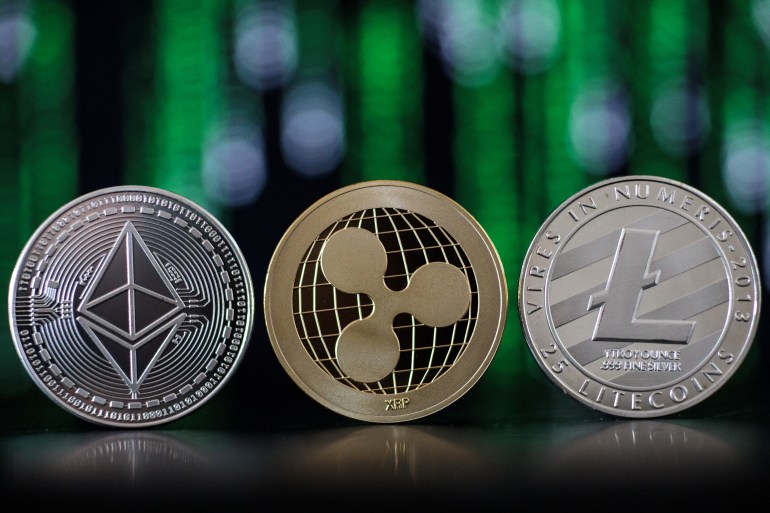"Bitcoin may not last much longer," Eswar Prasad, a professor of international trade policy at Cornell University, told CNBC's Squawk Box Europe earlier this month.
Bitcoin's price has been very volatile over the past few years, and in the last month its price has dropped from around $58,000 to less than $48,000.
While there were a few cryptocurrencies, today there are hundreds and some are more useful and environmentally friendly than Bitcoin.
Blockchain, or what is known in Arabic as the basic technical block chains, is behind most cryptocurrencies.
It is basically an accounting ledger but is digital, for recording virtual currency transactions that are distributed across a global network of computers.
Prasad, author of The Future of Money: How the Digital Revolution is Transforming Currency and Finance, added that Bitcoin's use of blockchain technology is not very effective.
Today there are hundreds of cryptocurrencies and some of them are more useful and environmentally friendly than Bitcoin (Getty Images)
He explained that the cryptocurrency has become "environmentally using the transaction validation mechanism", while "Bitcoin is not developing well in this area."
It consumes more energy than New Zealand's total energy consumption.
Prasad said that some of the newer cryptocurrencies use blockchain technology more efficiently than Bitcoin.
Prasad believes that blockchain technology will change the way finance is currently done, as well as the way we conduct our daily transactions, such as buying a house or buying a car.
"Given that Bitcoin does not work well as a medium of exchange, I don't think it will have any fundamental value other than investor demand and trust in it," Prasad continued.
All in all, cryptocurrencies “lit the fire… with central banks starting to consider issuing digital versions of their own currencies,” Prasad said.
Prasad noted that such digital currencies can be beneficial, as they may provide low-cost payment options that are accessible to everyone, thus increasing financial inclusion and possibly financial stability.
"As much as you may not like Bitcoin, it has already taken place as a revolution that may benefit all of us directly or indirectly," he said.

